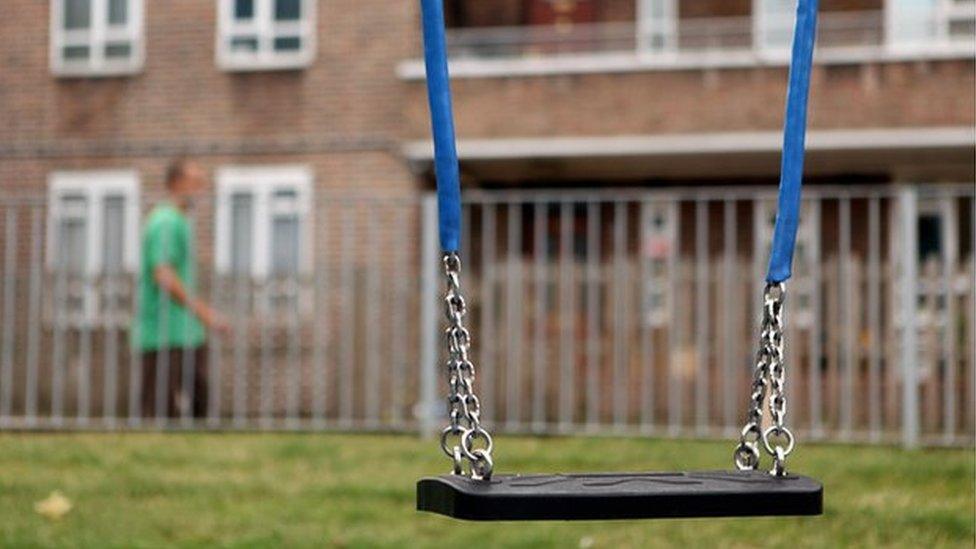Under-fives in poverty 'may never catch up' with peers
- Published
- comments
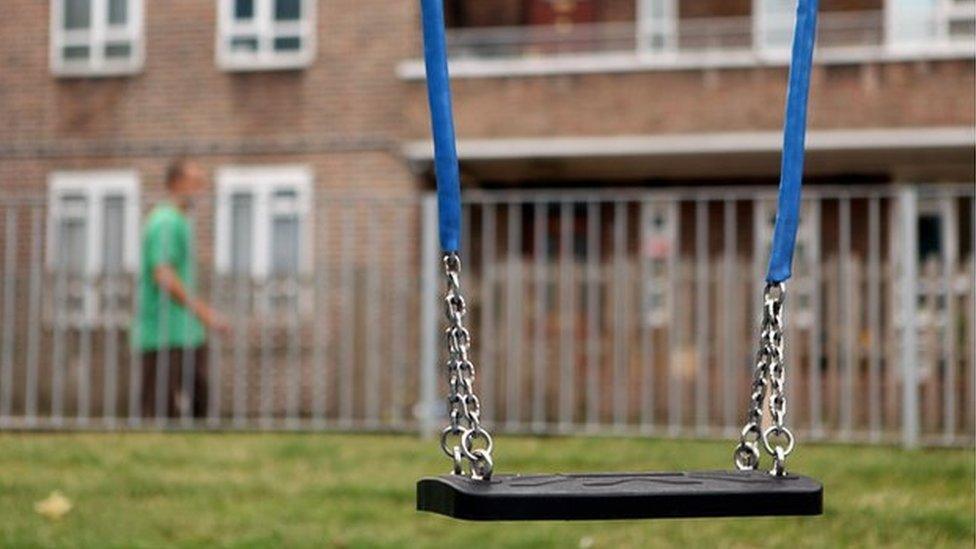
Wales has some of the highest poverty levels in the UK
Children living in poverty in Wales are falling behind and may never catch up with their classmates, a charity has warned.
A report, external by Save the Children said a third were behind their peers by age five in vocabulary and dexterity and may "never catch up".
It said high quality early years education to support a child's home life was key to tackling the issue.
The Welsh Government said it was committed to addressing the problem.
Save the Children estimated more than a quarter of children under five years old - about 50,000 - were living in poverty - measured as a household with an income of less than £9,804 a year.
The Welsh Government had hoped to abolish child poverty in Wales by 2020 but last year it admitted it did not have the power to make the changes needed to achieve it.
The Welsh Conservatives and Plaid Cymru said the Welsh Government's strategy was not working and children were being "failed".
Research by Save the Children shows once children fall behind in their early years they are more likely to struggle throughout their education.
According to its report, nearly half of the children who were in the lowest performing groups at the beginning of primary school remained there at ages seven, 11 and 14.
"Our concern is that the current state of play is resulting in a childcare system that is not fulfilling its potential to help prevent children in poverty falling behind early and remaining behind throughout their education and further into their lives," the report said.
"The consequences of children being unable to benefit from quality early education and care for children's development and learning can be devastating.
"We fear that for too many children in Wales, particularly those living in poverty, access to high quality provision is still too often left to chance."
It also claimed about 22,000 children - or 44% - who live in poverty were not eligible for the Welsh Government's Flying Start programme, external, aimed at children under four in deprived areas.
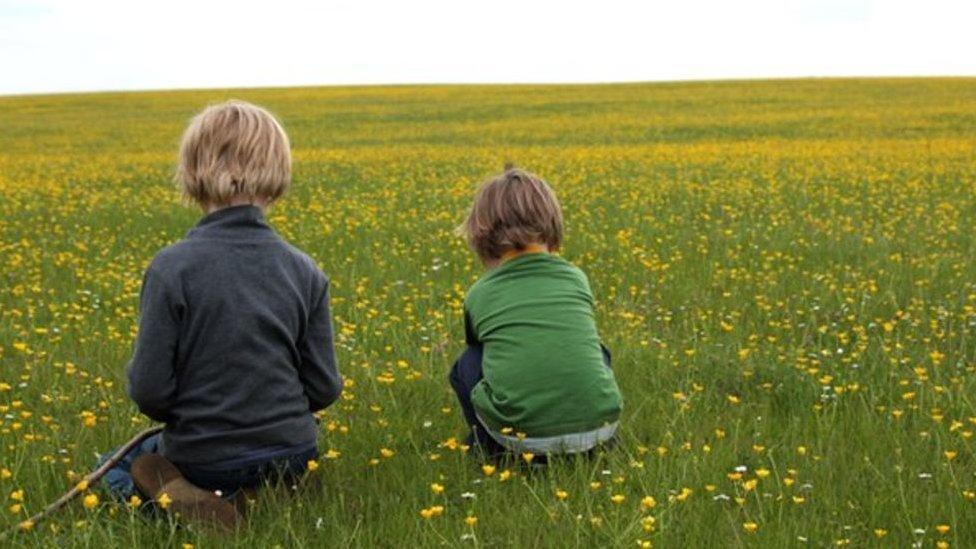
Welsh Government says 88% of offers for Flying Start childcare provision were taken up by eligible families in 2016-17
Eligible two and three year olds are entitled to 12.5 hours of free childcare a week for 39 weeks plus at least 15 sessions during the school holidays.
The scheme also gives parenting support, an enhanced health visitor service and support for speech, language and communication.
All three and four year olds in Wales are entitled to 10 hours of free childcare a week during school term time.
The charity has called on the Welsh Government to provide equal access to early years education and childcare for all children.
Early years specialist Prof Karen Graham, of Glyndwr University in Wrexham, said: "I'm firmly of the belief that children in Wales should have equal access to quality provision that will support them in their early years experiences, their education later and their life chances."
Bethan Jenkins AM, Plaid Cymru spokeswoman for children and young people, said the Welsh Government's "failure to solve the problem or prevent its worst effects has had a serious impact on childhood equality and widened the attainment gap".
Conservative AM Darren Millar added: "A lack of effective reform in our education system, combined with a failure to lift our most desperate communities out of poverty, has created an uneven playing field where far too many children are left behind never to realise their full potential."
The Welsh Government said it had invested in early years programmes to tackle the issue but said it needed to ensure all services "come together seamlessly to get the best value for parents and children".
Prosperity for All, external [its strategy for a more prosperous Wales] includes a commitment to address this by creating "a more joined up, responsive system that puts the unique needs of each child at its heart", he added.
The calls for change come as the Welsh Government launches a new children's oracy campaign, external aimed at improving communication skills for children aged three to seven.
- Published2 November 2017
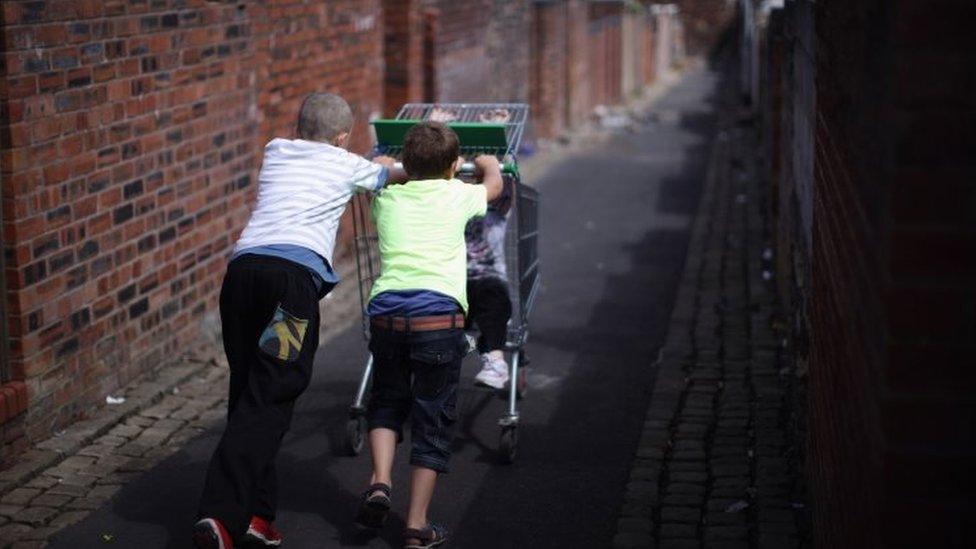
- Published22 June 2017
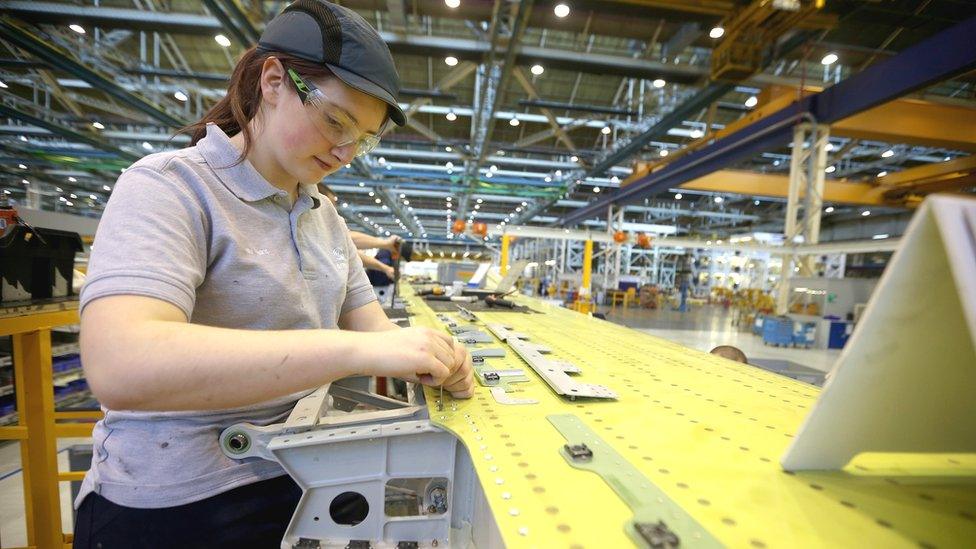
- Published18 June 2015
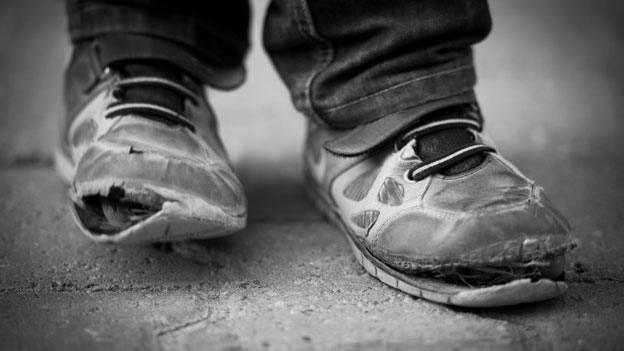
- Published26 January 2017
